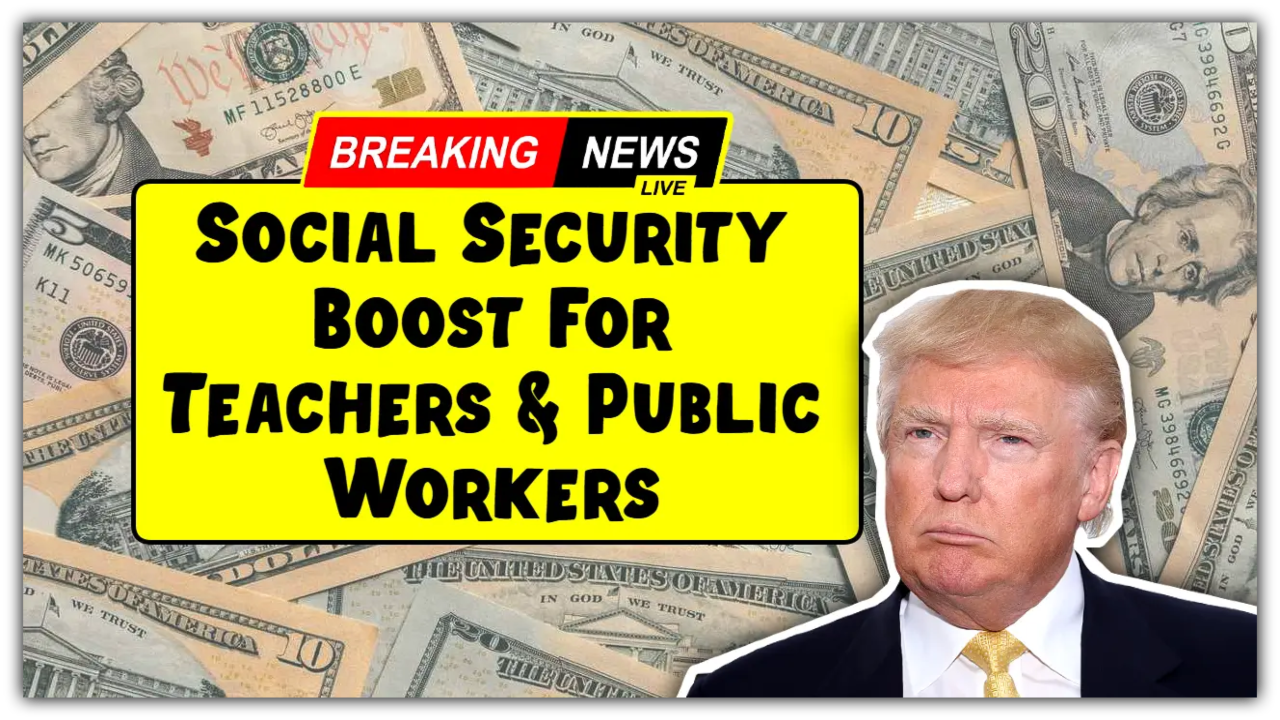New Social Security Law Changes Everything for Public Workers — See What You’re Really Owed
If you’ve worked your whole life in public service—maybe as a teacher, police officer, firefighter, or in any local or state government job—you probably already know this: Social Security hasn’t always played fair. And if you also had a second job that did pay into Social Security, you may have seen your benefits cut in a way that never really felt right.
But as of January 5, 2025, that’s finally changing.
What Just Happened?
President Joe Biden just signed something called the Social Security Fairness Act, and here’s the big deal: it gets rid of two unfair rules that have been hurting retirees for decades—the Windfall Elimination Provision (WEP) and the Government Pension Offset (GPO).
In plain English? Those two rules could drastically reduce your Social Security check just because you also earned a public pension. Even if you paid into Social Security through another job. Even if your spouse passed away and you were supposed to get survivor benefits. Harsh, right?
This new law wipes those rules out completely.
Who’s This Really For?
This new law mainly helps:
-
Public school teachers
-
Cops and firefighters
-
City, county, and state workers
-
Federal workers under older systems like CSRS
-
Basically, anyone who worked a government job that didn’t pay into Social Security but also earned Social Security through other work
If you fall into that camp, you might’ve been losing out on hundreds—or even thousands—of dollars a year. But now, those lost benefits are coming back.
So, What Changes?
Let’s talk about what this actually means for your wallet:
-
Monthly payments are going up: Many retirees are seeing an increase of around $360 a month, and some even more—up to $1,100 extra.
-
Retroactive money is coming: Yep, the government is making up for lost time. Some retirees are getting lump-sum payments averaging $6,710, covering money they missed out on since January 2024.
-
More than 1.1 million people have already received this back pay—and over $7.5 billion has gone out so far.
What Should You Do Now?
If this might apply to you, here’s what you can do:
-
Go to ssa.gov and log into your my Social Security account.
-
Make sure all your personal and bank info is correct (so your payments don’t get delayed).
-
Keep an eye on your mail or bank statements—updated checks and retro payments are being sent out now.
-
If you’re confused or not sure you qualify, don’t guess—call the SSA or your local Social Security office and ask.
Let’s be real: for a long time, people who spent their careers serving their communities were getting shortchanged. This wasn’t just about numbers—it was about respect. About fairness.



Comments are closed, but trackbacks and pingbacks are open.